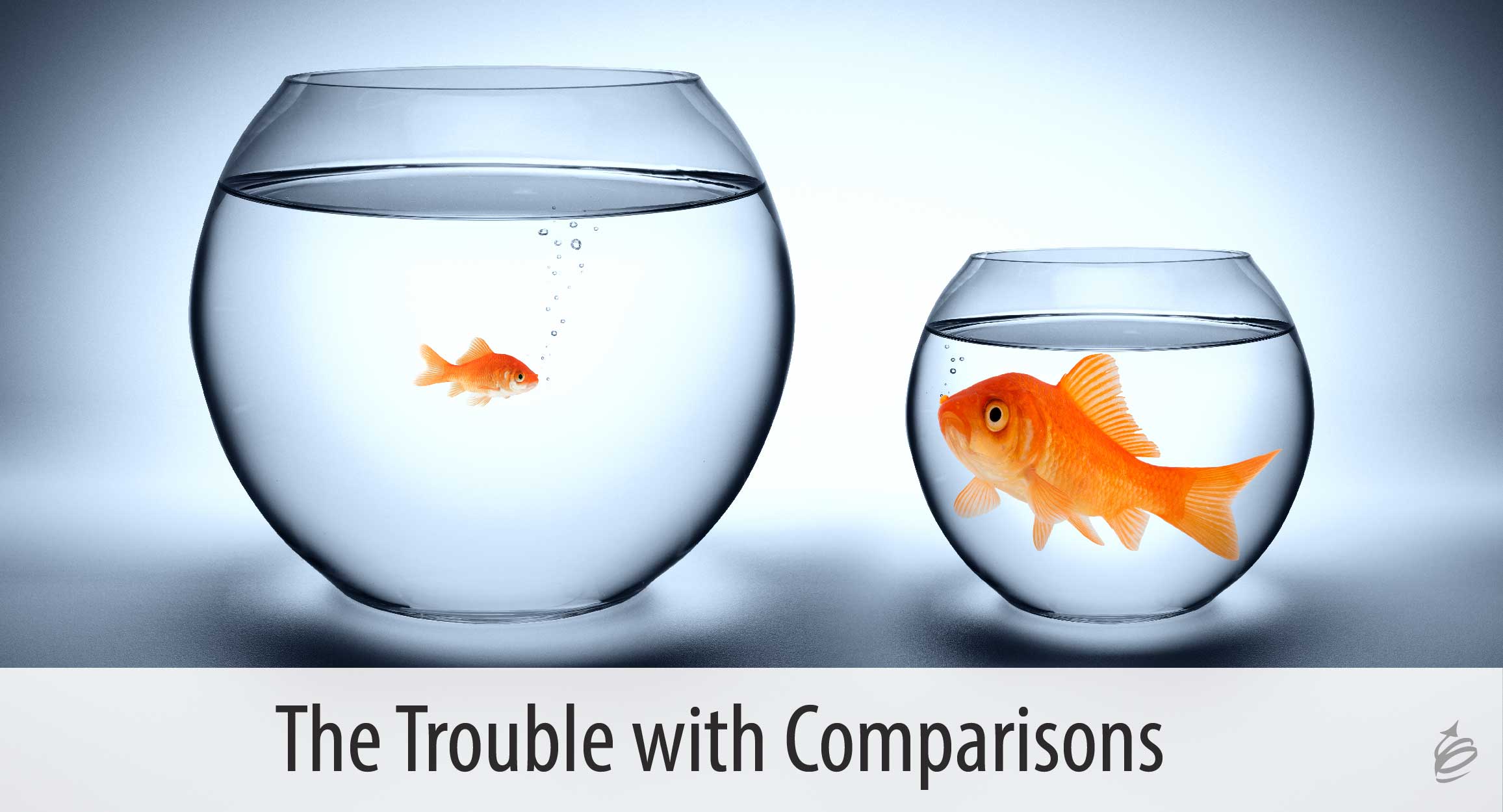 We all do it. We see someone doing something that we value – and doing it very well. If we want to be better at what they are doing, at first it makes sense to look at them and compare ourselves. Comparisons like this rarely help. In fact, they can be quite damaging to our development and our psyche. Unless we do it right.
We all do it. We see someone doing something that we value – and doing it very well. If we want to be better at what they are doing, at first it makes sense to look at them and compare ourselves. Comparisons like this rarely help. In fact, they can be quite damaging to our development and our psyche. Unless we do it right.
The Toughest Comparison
The comparisons I am writing about here start with us looking at someone who is exceptionally good at something that we wish we were better at. It starts out innocently, almost admirably. We see someone with great skill or accomplishment, and we watch them intently; wanting to learn from their skill and prowess. In and of itself, there is nothing wrong here. The problem comes with the filter we create about this person’s skills. As we watch them to focus on their greatest strengths, and the more we observe those strengths, the less we observe, or even notice their weaknesses or failures.
It is at this point when our out-of-focus view of the other person moves from admiration to adulation, and from learning from them to lusting for what they have. When comparisons reach this point, it is best to remember that whomever you are idolizing is a human with frailties and faults, just like you. Remember too that for every great strength you are observing, they have weaknesses too – just like you.
The Confidence Killer
Comparisons are tough enough when we compare our worst to someone else’s best, but when we determine someone’s best is unreachable, we have the recipe for killing our confidence.
This is the one of the biggest problems with the comparison to someone who is exceptional at something we aspire to. Inevitably, we end up at “I could never be as good as them.” Once we reach this point, the downward spiral of our confidence is determined, and any chance that we can look at that person’s accomplishments or skills as aspirational versus impossible is lost.
Comparisons can help when we look that them in the right light. In fact, if we keep them where we started – watching and observing a highly skilled person can be helpful. We keep it in the right light when we attempt emulation not imitation.
Emulation, Not Imitation
Can we learn from a high achiever? Can our skills grow from observing a master? Of course, but not if we allow the trap I have described to become reality. The trap is imitation. When we put someone on a pedestal and do our best to be like them, we lose our confidence and our sense of self. You probably will never be able to sing or act like your favorite, play basketball like Michael Jordan, write like Stephen King, or lead like Lincoln. These people brought (or bring) unique talent, work habits, and their personal experiences to their craft, helping them become as successful as they are/have been.
Emulation is something quite different and far more productive. Can the basketball player study tape of Michael Jordan not as a fan but as an inspiration and become better? Of course. It happens by watching the unique strengths to build their skills, not go fan-boy on MJ. Can you be a better writer by studying how Stephen King frames a story, or emulating his daily writing habits? Yes, you can.
Studying and observing high performers can be a great way to build your skills as long as you avoid the traps and use the expert as an example, not an excuse.

0 comments